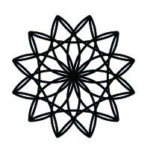Researching Your Family History
The events in our family history can have a profound impact on our lives today – even if we don’t consciously know the stories. Our family history lives on in our bodies and energetic field. (I made a short video explaining inherited family trauma here.)
Learning more about the lives of our ancestors can help us understand and even shift our own fears, struggles, and symptoms.
If you’re feeling called to learn about our family history, there are several tools online that can make it easier to research and organize your family history. Here are some resources I’ve found helpful, and what kinds of things I’m looking for in the records.
Where to Gather Information
DNA Profiles: 23andMe and Ancestry DNA
There are two primary services for getting a DNA profile of your lineages. These can show you:
- what parts of the world your ancestors came from (for example, 35% British, 25% German, 45% Ashkenazi Jewish)
- roughly when they joined your family line (for example, a British ancestor joined the family in 1850-1880)
- If you choose to be available to connect with others, these services will also match you with other people with whom you share DNA (family members) who have also opted to connect. (For example, I periodically get an email from 23andMe saying I have new DNA relatives – mostly 4th or 5th cousins.) Using this service made it possible for me to confirm a line of my family where one member was given up for adoption several generations back.
Sites periodically offers sales. Here are the two main providers:
- https://www.23andme.com/
- https://www.ancestry.com/
Genealogy Sites
There are several websites where you can build a family tree and search source data (census data; birth, death and marriage records; etc.). You can also search and review other people’s family trees to see who they’ve added as ancestors and descendants of a given person. These sites will not show vital data about living people.
A few options are:
- https://www.ancestry.com/ Ancestry is a paid membership site. They are well-established and have a wealth of resources online – and they add to it all the time. There is a US membership and a World Explorer membership – needed to review records in other countries. You can build your tree and research all in one place here. They often have a membership sale around holidays.
- FamilySearch • Free Family Trees and Genealogy Archives — FamilySearch.org FamilySearch is a free resource, so they’re a great option for getting started. You can build a tree and research here. It’s a non-profit service offered by the Church of Jesus Christ of Latter Day Saints.
- SEARCH Genealogy | WikiTree FREE Family Tree WikiTree is also a free resource for building a tree. You can search and view other people’s trees, but they don’t have a lot of original source material like Ancestry does.
Other Useful Sites
Along with specific sites mentioned above, here are some other resources:
- VitalCheck is a vital records request service. You can order birth, marriage and death certificates online if you know the name, date, and location. This is the best way to verify data and can give you more info about cause of death.
- Google or other internet browsers. I’ll sometimes put an ancestor’s name in the search box just to see what comes up.
- Wikipedia. This can be helpful for getting more context into an historical event. For example, I found a line of my family that came from Germany in the Palatine Migration. I searched Palatine Migration to learn more about it.
- Town history websites. Many towns have a historical society that hosts a website with a history of the area.
- Find-A-Grave.com has loads of cemetery headstone photos and data. Some profiles have a little more biographical information as well.
What Am I Looking For?
If you want to research your family’s past because you’re wondering about inherited family trauma, here are some things to look out for in your research:
- Did someone die young?
- Did someone serve active duty in the military?
- Did someone immigrate? Can you get an idea of why?
- Did someone divorce or lose a spouse young?
- Did someone survive war or other collective trauma?
- Was anyone incarcerated, institutionalized, or held prisoner?
- Was anyone put up for adoption? (I found one record of an adoption. I’ve also found census records tracking that, at a certain point, a child was raised in another household. I found one census record of a family member in the “home for friendless women and children.”)
When the pandemic started, I found it interesting to look at how many of my relatives died in the flu epidemic.
When I find information or add a name to my tree, I notice how I feel. Most of the time there will be a neutrality to it – especially further back in history. Sometimes I encounter an ancestor who seems to have a sort of charge around them, or I notice it brings up a feeling or reaction in my body when I learn about them. This signals it’s worth exploring a possible (unconscious) connection with this person.
If you want to explore the connections between your life and your family history with a healing facilitator, book a Discovery Session with us.



 Marah Bashir on Unsplash
Marah Bashir on Unsplash Ben Collins On Unplash
Ben Collins On Unplash